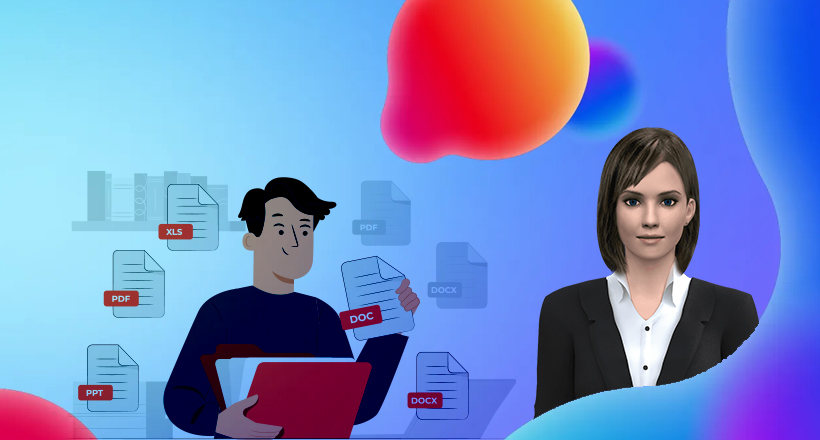AI cognitive document processing succeeds at capturing data from various documents where OCR and simple bots have failed. Cognitive document processing speeds the acquisition of critical financial information, contributing to efficient, effective process automation.
Information is the lifeblood of financial processes. But the lack of accessibility of the necessary information has been a tremendous hurdle to efficiency. Take the order-to-cash process as a particular example. The information required to grant credit, collect payment or apply cash is “locked up” in widely diverse formats and no format at all, hampering AR operations. Moreover, for global enterprises, multiple languages and currencies compound the problems of various information formats.
Technology has worked toward a solution for a long time. First came scanning, but it required reading and keying. The development of optical character recognition (OCR) was a critical step forward, as was the subsequent application of robotic process automation (RPA), which further reduced the manual aspects of capturing information.
But even RPA is limited. Document formats are so variable that RPA-enhanced document recognition doesn’t perform well with multiple unknown formats and unformatted information like that in email correspondence.
AI-Applied to Document Processing
However, the application of artificial intelligence (AI) to the problem has overcome these limitations through cognitive document processing. Cognitive document processing allows enterprises to achieve paperless financial operations finally.
To solve the problems of varied and unformatted documents, AI brings greater interpretive power and the ability to learn. With neural networks and deep learning, which means interaction among layers of sophisticated algorithms, these cognitive document systems can correctly interpret and extract requisite information from structured and unstructured documents.
Paperless Financial Operations with Gia Docs AI Download Ebook Now
Cognitive Document Processing
For example, Emagia’s Gia Docs AI is a next-generation cognitive data capture service that can read all kinds of finance documents, find and extract the correct information. It can interpret and extract data from voluminous, unstructured, and complex documents. Gia Docs AI can capture data, for example, from invoices, bank statements, remittance advice, PODs and more.
Cognitive document processing eliminates manual extraction and data entry, improves accuracy and coverage overtime via its self-learning capability, and delivers substantial increases in speed, accuracy, and productivity.
Case in Point: Cash Application
Cash application offers an example of an enterprise utilizing cognitive document processing to achieve excellent efficiency and save on costs such as bank lockbox fees.
The typical process is cumbersome. Companies pay a bank to manually key remittance data into a file for upload or manually input, which is very expensive where payment volume is high. Meanwhile, staff key data from other source documents and scanned documents that cannot upload. There is also significant outreach required to customers to secure remittance information. ERP auto-cash engines provide inadequate match rates, requiring more manual follow-up. All this happens only during human working hours.
Cognitive data capture, for example, Emagia’s Gia Docs AI, extracts remittance data from a host of customer sources with various formats. These include customer’s vendor portals, a company’s customer-populated EIPP portal, Excel files and PDFs and other statements from customers and lockboxes, and customers’ EDI 820 or BAI2 transmissions. It outperforms RPA in dealing with multiple unknown document formats.
Cognitive document data capture assistants can then auto post cash receipts to the correct invoices. For example, Gia Docs integrates with bank lockboxes, a company’s own AR and collection modules, and its ERP system(s). In addition, Gia Docs includes an auto-cash engine that applies cash based on invoice, PO or sales order number and has pre-set tolerances for matching payments to open invoices.
A Vital Function and a Part of True Automation
Companies can access cognitive document processing services discretely to gain these distinct benefits. But AI-powered documents processing is a key component of richer digital process platforms. These digital platforms, which bring hyper-automation to financial processes like order to cash and procure to pay, are the future of financial operations.









